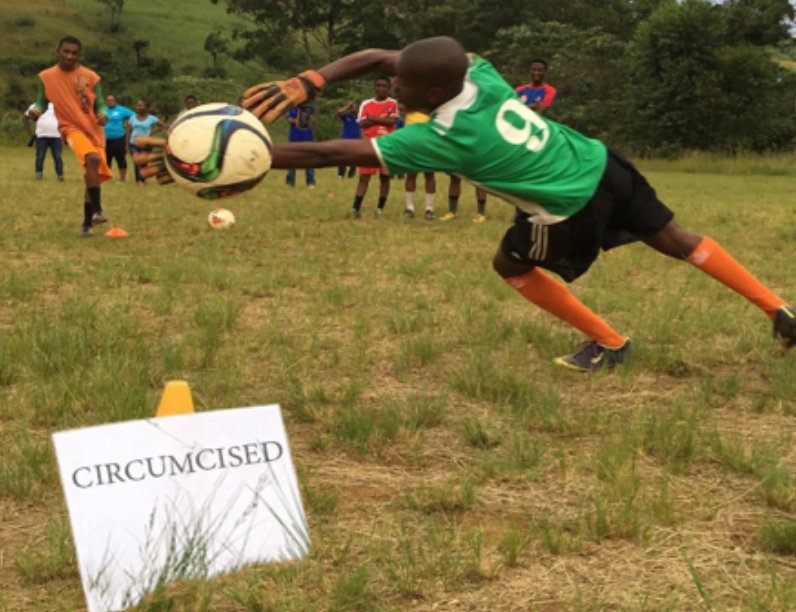GRS Zimbabwe Partners with PSI on USAID Going the Last Mile for HIV Control Project

ZIMBABWE – Grassroot Soccer Zimbabwe (GRS) is thrilled to announce an exciting partnership with Population Services International (PSI) that continues our commitment to reducing the HIV incidence rate among adolescents and young adults in areas of southern Africa and around the world.
Launched in January 2019, the program is part of the U.S. Agency for International Development’s (USAID) Going the Last Mile for HIV Control Project and will utilize soccer-based interventions and Caring Coaches to generate demand for and facilitate access to voluntary male medical circumcision (VMMC), condom distribution, and HIV self-testing demand creation for adolescent boys and young men ages 15-29 in Bulawayo and Harare Provinces. In additional to PSI, other USAID Last Mile consortium partners include IDEO.org, Internews, Centre for Sexual Health and HIV/AIDS Research Zimbabwe (CeSHHAR), Family AIDS Caring Trust (FACT), Gays and Lesbians of Zimbabwe (GALZ), and Hands of Hope.
The project uses a combination of interpersonal communication activities centered around soccer metaphors, proven male engagement approaches, and evidence-based health information as well as high-volume community health soccer tournaments. Circumcision is a critical component of HIV prevention; according to the World Health Organization, medical male circumcision reduces the risk of female-to-male sexual transmission by 60%. Grassroot Soccer’s curriculum, called Make the Cut, is presented by a circumcised adult role model and addresses key barriers that deter adolescent boys and men from being circumcised and highlights the benefits of being circumcised. Make the Cut has been evaluated by two randomized control trials (RCTs) in Zimbabwe and highlighted in UNAIDS’ 2017 World AIDS Day Report Addressing a blind spot in the response to HIV – Reaching out to men and boys, showcased by PEPFAR in Country Operational Plan (COP) 2017 Guidance as a Country Example of Priority Interventions for HIV Prevention, and recently selected best-in-class by the OPTIONS Consortium for “Demonstrated Impact” as part of the Insight to impact: Driving Demand Creation for HIV Prevention Challenge.
The need for accessible information about HIV prevention and treatment is especially dire among youth. Globally, the rate of HIV-related deaths has been steadily declining in recent years among all age groups – except adolescents. Stigma and discrimination can prevent young people from getting tested for HIV and create an unsupportive environment for adolescents living with HIV. GRS’s 3A’s model aims to work with young people to build their SRHR assets – health knowledge and the confidence to use it – improve their access to high-impact health services, and promote their adherence to healthy behaviors. GRS does this through providing youth with accessible curriculum, Caring Coaches who serve as relatable, community-based mentors, and a culture that inspires vital conversations and provides safe spaces, all within a fun and inclusive environment.
GRS would like to acknowledge the PSI Zimbabwe team who continue to provide insight and expertise that greatly assist in the conducting of VMMC. GRS acknowledges that this project is made possible by the generous support of the American people through the U.S. President’s Emergency Plan for AIDS Relief (PEPFAR) with USAID. The information provided does not necessarily reflect the views of USAID, PEPFAR, the U.S. Government, or PSI.

